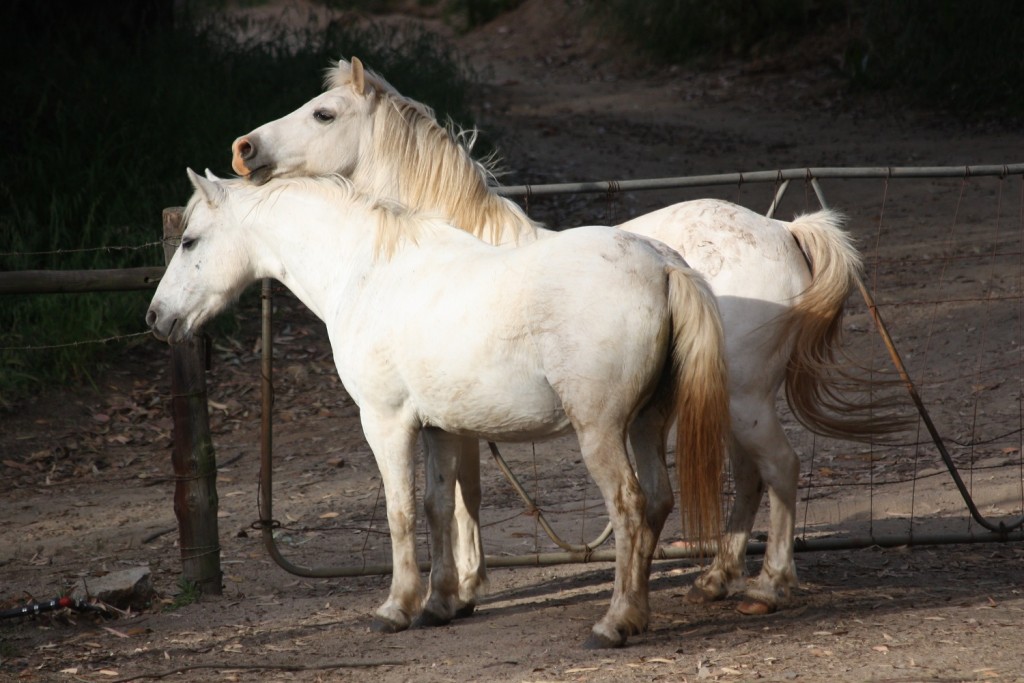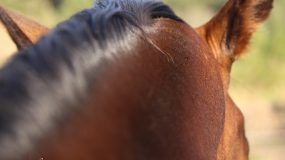“You cannot teach your horse anything.” Sandy said, smiling with that familiar glint of wisdom in her eyes. I had to pause to think about this statement. It is not a statement one expects to hear from a trainer and it is hard to accept as a trainer as well. The more I thought about it, the more I realized just how depressingly true this statement is. If left unattended, horses will revert to their natural way of going. It happens often in riding schools – a horse will carry itself proudly, with more cadence and expression, a sparkle in its eye, joy evident, with one rider. The next rider will mount and the same horse will become dull, hollow and seem to drag its feet through the lesson, the rider employing every ounce of will power they posses in order to ignite some sort of enthusiasm in their mount. Although we like to think that this has everything to do with skill, this doesn’t seem to be the truth. In reality a handler with very little experience is sometimes able to elicit the most spectacular flamboyance from a horse, while some equestrians practice for many years and seem to struggle continuously to grow on their path.
As I am toying with this idea of not being able to teach horses anything, it has become much less a depressing fact of life than it has become inspiration to focus on who I am to them. If we are to assume that horses are perfect the way they are (and let’s admit it, many of them are – they would live perfectly happy lives without our interference), we are confronted with a few questions. How do they see us? Why would they want to spend time with us? What can we offer them? What can they offer us? How do we approach them in a way that will add value to their lives? What can we unfold in the horse and how do we unwrap the gifts we want from them without damaging who they are?
It is becoming my opinion that we cannot teach them anything – we can only explain to them what we want. If we are not receiving what we want, we have either not asked the question correctly or we have not sufficiently breached our language barrier in a way which makes the question understandable. It boils down to how we communicate what we would like. If we are first and foremost interesting to them, trustworthy and quiet, there is a chance that we can reach our goals. In other words, if we are unwilling to alter who we are, we cannot expect authentic expression from our horses.
What we can influence, is how they perceive themselves. This is a frightening thought. By our direct interaction with the horse, we are able to give them confidence, fear, joy, frustration and nervousness. Although their root personality is largely intact within their first year of life, the humans who interact with horses have a direct influence on the personality of that animal. So although we are not able to condition them to work in a particular frame 24/7, for example, we can literally cause anxiety disorders and behavioural mal-adaptions in horses. Many of these issues stem from the human need to get what they want from the horse or from the other extreme – humanizing their horses. It is imperative that we realize this. If our horses are stressed, we need to honestly ask ourselves what we have done as an owner/handler to ensure that our horse is confident within himself. Is our time spent with our horse helping them to cope with life without us or are we propogating a Stockholm Syndrome animal? If we have had our horse for 5 years and they are still afraid of plastic packets, have we really addressed the fear that horse lives with? If our horse is unable to load after trainer after trainer has looked at them, are we sure that we are not the problem ourselves? This is not easy for many riders to accept, but it is truth and it is universal. We have the power to influence how a horse sees his world and how he views himself. What do we do with this power?






